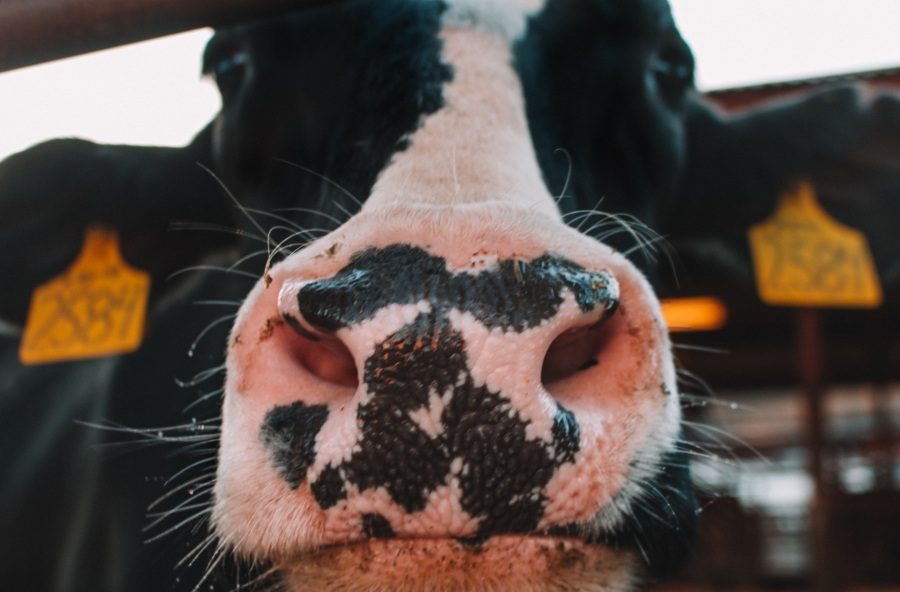
The vegan lifestyle is both inaccessible and not as green as you’re led to believe
 In the wake of increased public awareness about the consequences of climate change, spring — rather than winter — appears to be the first casualty.
In the wake of increased public awareness about the consequences of climate change, spring — rather than winter — appears to be the first casualty.
Here we reside, in the middle of May in Davis, California, with temperatures swinging erratically between mid-80s one day to mid-60s the next. And while the general population appears somewhat concerned, we all continue on with our day without batting an eye.
Well, almost everybody.
Unfortunately, this strange spring seems to have increased the strength of That One Vegan. You know the type: Newly converted and outspoken, these recent recruits behave with a sense of single-minded purpose that resembles the proselytizing fanatics of one religion or another. This isn’t to act as an invalidation of the premise of veganism — I understand that some adopt the lifestyle for dietary or moral purposes, which is entirely acceptable.
But this article is addressed to those who overstep themselves; those who go out of their way to shame others who choose a more meat-based diet, for no other reason than their apparent disregard for the “animals killed in the production of their meal.”
There’s no doubt about the environmental impact of meat. Amid all the reports studying the degree to which agriculture contributes to global warming, it seems that scientists can agree that the livestock industry has had the largest toll on both local ecosystems and the concentration of atmospheric greenhouse gases.
Veganism, however, cannot be treated like a religion if it wishes to fix the problems its supporters declare to anyone in hearing distance.
Repeated demonstrations against the mistreatment of animals raised for human consumption not only desensitize the general populace; they also ignore many of the problems surrounding the vegan lifestyle.
First, language referring to veganism as a semi-religious experience is extremely off-putting: perceiving diets in such black-and-white terminology immediately excludes entire groups, such as vegetarians and meat-eaters, solely on the basis of disagreement.
As a result of the exclusivity of veganism, the original — and individualistic — intentions for adopting the diet are largely ignored. That is to say, while declaring that someone should feel guilty for what they eat, the message of animal mistreatment and environmental concerns rarely reaches as wide of an audience as it potentially could.
At the same time, because productive conversation rarely exists between vegans and non-vegans, few people discuss the inaccessibility of the vegan diet.
Veganism is expensive. Although vegans don’t spend money on animal products, they are ultimately more likely to spend more on pricey organic and specialty “health” foods than the average meat-eating consumer. Moreover, the knowledge of how to stay healthy without some of the essential nutrients solely found in meat comes at the cost of both time and access to informative resources. One could even compare this to a luxury only affordable to upper-middle class residents.
The availability of nutritional supplements and fresh produce becomes problematic especially in food deserts, where lower-income residents have difficulty procuring food that’s not highly processed and cheap like the Dollar Menu from McDonalds. Yelling at someone for not adhering to your personal standards fails to recognize institutional problems — such as poverty, gentrification and food insecurity — that limit a person’s ability to follow a lifestyle they just can’t afford.
Again, I’m not against veganism by any means — if you follow that kind of lifestyle, I wholeheartedly support it.
But veganism doesn’t work when all you do is accost people on the street, berate your friends or guilt-trip them into becoming vegan. All that does is make it easier for people to tune you out.
We need to be more open about the issues currently manifesting through our treatment of food. What good does it do to shame someone for eating meat when that’s their only possible meal?
On the other hand, if you find yourself worried about the effect that livestock has on global climate change, acknowledge that some crops — like quinoa — do harm ecosystems as well.
So as Davis weather continues to fluctuate from spring to summer to spring and the sun calls you to study on the Quad, if That One Vegan approaches you, don’t feel too bad about yourself.
Nothing is entirely unproblematic — even veganism.
Written by: Erin Hamilton — elhamilton@ucdavis.edu
Disclaimer: The views and opinions expressed by individual columnists belong to the columnists alone and do not necessarily indicate the views and opinions held by The California Aggie.





I’m sad that your experience with vegans has been so negative! I’ve experienced the opposite and I hope the vegans you meet in the future are as such. I agree, there is a lot of emotion surrounding the conversation; It comes from both sides. I dont mention my lifestyle to people much because I receive pushback and disrespect at mere utterance of the word vegan. With that, many people are misinformed about the cost of eating plant-based. Staples like rice, beans, potatoes, and peanut butter are cheap. Fruits and vegetables (which should be consumed no matter what your diet) don’t need to be organic if your budget doesn’t permit. In anycase, the health benefits that come from eating plant-based tend to result in lower health care costs. Vegan or not vegan, it’s empowering to take the time to research your nutrient intake and what you put into your body. Non-vegans, likewise, experience nutrient deficiencies and can benefit from reading up on their dietary choices. All the best!
Quite the funniest part of this op-ed: “Again, I’m not against veganism by any means.” Really?
Oh fuck off
“they are ultimately more likely to spend more on pricey organic and specialty “health” foods than the average meat-eating consumer” well you make a lot of good points but thats just simply not true, there are tons of meat eaters who spend ridiculous amounts of money on things like manuka honey and all those other crazy expensive things